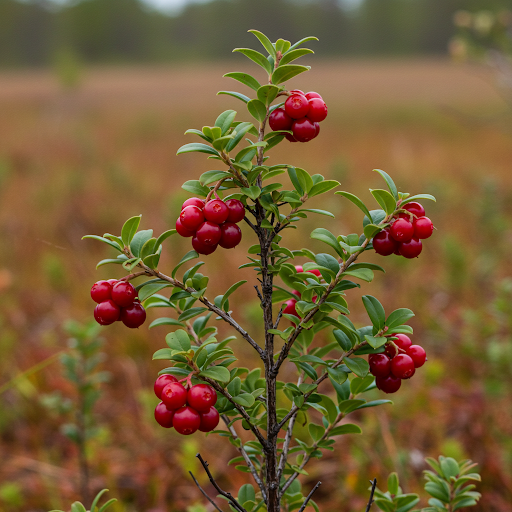American Cranberry Seeds
American Cranberry Seeds
Couldn't load pickup availability
American Cranberry
(Vaccinium macrocarpon)
Vaccinium macrocarpon, commonly known as American cranberry, is a low-growing, evergreen shrub native to northeastern North America. It's most well-known for producing the bright red berries that are a staple in juices, sauces, and holiday meals.
Plant Characteristics:
Family: Ericaceae (heath family)
Growth habit: Creeping, woody vine with wiry stems
Height: Usually 4 to 8 inches tall, but spreads horizontally
Leaves: Small, leathery, and dark green in summer; turn reddish in fall
Flowers: Pinkish-white, bell-shaped, appear in late spring to early summer
Fruit: Red berries ripen in late summer to early fall
Habitat & Growing Conditions:
Native Range: Primarily northeastern U.S. and southeastern Canada
Preferred Soil: Acidic (pH 4.0–5.5), sandy, peaty, or boggy soils
Light: Full sun to partial shade
Moisture: Requires consistently moist soil; naturally found in wetlands and bogs
Uses:
Culinary: Berries are rich in antioxidants and vitamin C; used in sauces, jams, juices, and dried snacks
Medicinal: Traditionally used by Indigenous peoples for urinary tract health and wound care
Ornamental: Can be grown in acidic bog gardens or containers
Zones: 2 to 6
Germination Range: 60-80%
Stratification Requirement: 30-60 days cold moist stratification required. Seed required light for best germination results.
Planting Instructions:
Seed Stratification:
Cold Stratify:
Cranberry seeds need cold stratification to break dormancy.
Mix the seeds with moist sphagnum moss, peat, or sand in a plastic bag.
Refrigerate at about 1–4°C (34–39°F) for 30-60 days
Check Periodically:
Make sure the medium stays slightly moist, not soggy, and look out for early germination.
Sowing the Seeds:
Prepare a Tray or Pots:
Use a shallow seed tray or small pots with a mix of:
2 parts peat moss
1 part sand or perlite
(Cranberries prefer acidic, well-draining soil.)
Sow the Seeds:
Sprinkle the seeds on the surface of the soil.
Press them in gently, but do not cover—they need light to germinate.
Moisture and Light:
Keep the soil consistently moist, but not waterlogged.
Cover with a humidity dome or plastic wrap if needed.
Place in bright, indirect light or under grow lights.
Germination Time:
Germination may take 3 to 6 weeks, sometimes longer.
Seedling Care:
Transplanting: Once seedlings have a few true leaves, transplant them carefully into individual pots.
Soil: Continue using acidic soil.
Water: Cranberries prefer moist, acidic conditions, similar to bogs.
Light: Full sun is ideal once they’re established.
Share


